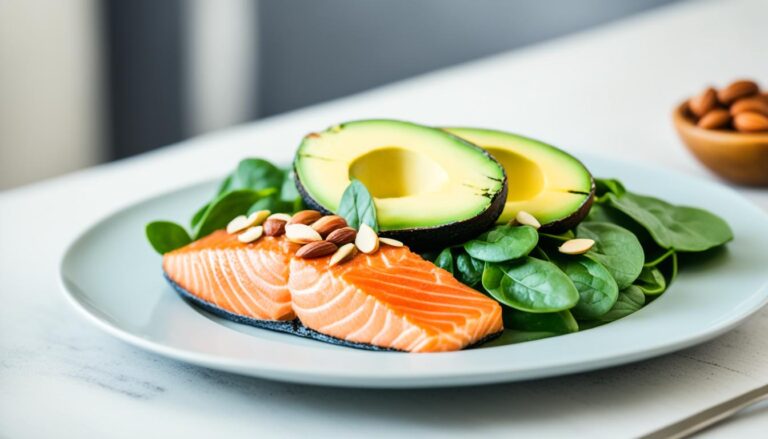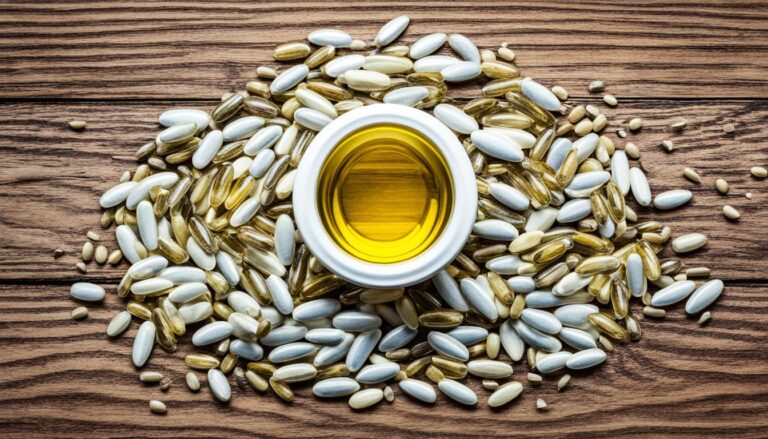There are a lot of misconceptions that people encounter on their way to a leaner body. Myths and fads often steal the show with their empty promises of miracle cures. By dispelling some of the most widespread misconceptions about weight reduction and providing actionable advice, this article hopes to help you achieve long-term success.
One common misconception is that you have to drastically cut calories to lose weight, but this can actually slow down your metabolism and make it harder to maintain weight loss.

Another myth is that you need to spend hours in the gym every day to see results, when in reality, consistency and quality over quantity are key. By focusing on sustainable lifestyle changes and listening to your body, you can reach your goals without falling victim to the latest fad diets or extreme workout routines.
Debunking Weight Loss Myths and Revealing the Truth
Several widespread misconceptions about losing weight are addressed here:
Myth #1: Crash Dieting Is the Way to Go-Embrace Moderation, Not Hunger
Although crash diets that severely limit caloric intake may provide temporary weight reduction, they are seldom helpful in the long run and usually backfire. They may wreak havoc on your metabolism, leading to muscular loss and exhaustion. Also, you can have cravings and binge eating episodes due to the severe calorie restriction.
Instead, focus on making sustainable lifestyle changes that promote overall health and well-being. Embrace moderation by incorporating a balanced diet and regular exercise into your routine. Remember, the key to successful weight management is patience and consistency, not deprivation and extreme measures. By taking a gradual and steady approach, you can achieve lasting results and improve your overall quality of life.
Myth #2: Carbs are the enemy. Focus on quality, not elimination.
Carbs aren’t all the same. Refined carbs like white bread, pastries, and sugary beverages contribute to blood sugar rises and falls, leading to increased appetite and cravings. However, complex carbohydrates included in fruits, vegetables, and whole grains provide sustained energy and important nutrients.
Instead of cutting out carbs completely, it’s important to choose the right kinds of carbohydrates to fuel your body effectively. By opting for whole grains, fruits, and vegetables, you can maintain steady energy levels throughout the day and avoid the crashes that come with refined carbs. Remember, balance is key when it comes to incorporating carbohydrates into your diet.
Myth #3: Exercise is Only for Burning Calories-It’s a Cornerstone of Overall Health
While exercise plays a part in producing a calorie deficit for weight reduction, its advantages extend well beyond that. Regular physical exercise develops muscle mass, which helps raise your metabolism and burn more calories even during rest. Additionally, exercise improves cardiovascular health, bone density, and general happiness.
It also reduces the risk of chronic diseases such as heart disease, diabetes, and certain types of cancer. Furthermore, physical activity has been shown to improve mental health by reducing symptoms of anxiety and depression. Overall, the benefits of exercise go far beyond just weight loss and can greatly improve overall quality of life.
Myth #4: Spot Reduction is Possible-Aim for Overall Fat Loss:
Unfortunately, you can’t focus on fat reduction in particular regions. Genetics plays a part in where your body stores fat, and activities like crunches won’t miraculously eliminate belly fat. However, continuous full-body exercise paired with a good diet will lead to general fat reduction.
Focusing on specific areas for fat loss is a common misconception, as it is not possible to target one area for reduction. Instead, incorporating a combination of cardio and strength training exercises into your routine will help you achieve overall fat loss.
Remember, consistency and patience are key when it comes to seeing results in your body composition. Stay committed to your workouts and healthy eating habits, and you will begin to notice a difference in your overall body fat percentage.
Myth #5: One-Size-Fits-All Solutions Exist-Individualization is Key:
What works for one individual may not work for another. Factors including age, genetics, medical issues, and exercise levels all impact weight reduction. Consulting a licensed dietician or healthcare expert may help you build a tailored plan that fits your individual requirements and interests.
They can provide personalized recommendations on diet, exercise, and lifestyle changes that can help you achieve your weight loss goals in a healthy and sustainable way. Additionally, they can monitor your progress and make adjustments as needed to ensure you are on the right track.

Remember, it’s important to focus on overall health and well-being rather than just the number on the scale. With professional guidance, you can create a plan that works best for you and helps you reach your desired results.
Building sustainable habits for long-term success
Now that we’ve addressed the fallacies, let’s investigate solutions for sustained weight loss.
Focus on Whole, Unprocessed Foods:
Prioritize fruits, vegetables, whole grains, lean protein sources, and healthy fats. These meals are rich with nutrients that keep you feeling full and provide your body with the building blocks it needs to perform efficiently.
Avoid processed foods that are typically high in added sugars, unhealthy fats, and preservatives. By focusing on whole, unprocessed foods, you can ensure that you are nourishing your body with the best possible ingredients. Additionally, these foods are often lower in calories and higher in fiber, making them an excellent choice for maintaining a healthy weight and overall well-being.
Pay attention to hunger and satiety signs. Eat gently, taste your meal, and minimize distractions while eating. This gives your body time to register fullness signals and avoids overeating.
By savoring each bite and being present in the moment, you can truly appreciate the flavors and textures of your food. This practice can also help you develop a healthier relationship with food and improve digestion. Remember, it’s not just about what you eat, but how you eat that can make a difference in your overall well-being. Take the time to nourish your body and enjoy the experience of eating.
Portion control is essential.
Use smaller dishes, measure out servings, and be cautious of serving sizes. By being mindful of portion sizes, you can better control your calorie intake and prevent overeating. It’s also helpful to listen to your body’s hunger cues and stop eating when you feel satisfied, rather than finishing everything on your plate. Remember, it’s better to enjoy a small portion of a treat than to deprive yourself completely and potentially binge later on.
Stay Hydrated:
Water is crucial for general health and may also assist with weight reduction. Drinking enough water throughout the day may help decrease cravings and enhance feelings of fullness. In addition, staying hydrated can improve digestion and keep your skin looking healthy and radiant.
It is recommended to drink at least 8 cups of water per day to ensure proper hydration levels. Making water your beverage of choice can also help reduce overall calorie intake and promote overall well-being.
Strength Training Matters:
Building muscle mass raises your metabolism and helps you burn more calories, even at rest. Include strength training workouts 2-3 times a week with your aerobic regimen. This will not only help you achieve a more toned and defined physique, but it will also improve your overall health and fitness levels.
Incorporating a variety of exercises targeting different muscle groups will ensure balanced strength development and reduce the risk of injury. Remember to start with lighter weights and gradually increase the resistance as you become stronger.
Find an activity you enjoy.
Exercise shouldn’t feel like punishment. Choose activities you find entertaining, whether it’s dancing, swimming, hiking, or team sports. This makes it more likely you’ll stay with it in the long term. Not only will you be more motivated to exercise regularly, but you’ll also likely see better results as you put your all into an activity that brings you joy.
Don’t be afraid to try new things and switch it up if you get bored – variety is key to staying engaged and committed to your fitness routine. Remember, the best workout is the one you’ll actually do.
Prioritize Sleep:
When you’re sleep-deprived, your body generates more ghrelin (the hunger hormone) and less leptin (the satiety hormone). Aim for 7-8 hours of decent sleep each night. This will help regulate your hunger hormones and prevent overeating. In addition, getting enough sleep will improve your overall mood, energy levels, and cognitive function. Make sleep a priority in your daily routine to support your overall health and well-being.
Manage Stress:
Chronic stress may lead to bad eating habits and hamper weight reduction attempts. Practice stress-management strategies like yoga, meditation, or deep breathing exercises. These techniques can help lower cortisol levels in the body, reducing the negative impact of stress on weight loss goals.
Incorporating mindfulness practices into your daily routine can also help you stay focused and motivated to make healthy choices. Remember to prioritize self-care and take time to relax and unwind to support your overall well-being.
Celebrate Non-Scale Victories:
Weight loss isn’t simply about the numbers on the scale. Focus on how you feel-greater energy, a higher attitude, better fitting clothing. Embrace the small victories, like choosing a healthy meal over fast food or completing a challenging workout.
Celebrate the moments when you resist temptation or push through a tough workout. Remember that progress is not always linear, and each positive choice you make is a step in the right direction towards a healthier lifestyle. Non-scale victories are just as important, if not more, than the number on the scale.
Seek Support:
Having a support system may have a tremendous impact. Talk to a friend, family member, or join a weight reduction support group for encouragement and accountability. You may also consider seeking professional help from a therapist or counselor who specializes in weight management.
Remember, you don’t have to go through this journey alone. Surrounding yourself with people who understand and support your goals can make all the difference in your weight loss journey. Don’t be afraid to ask for help when you need it.
Frequently Asked Questions (FAQs)
How much weight can I really lose every week?
A healthy and sustained pace of weight reduction is 1-2 pounds each week.
Can supplements help with weight loss?
Supplements may be a useful tool, but they are not a magic bullet for weight reduction. Initially, focus on a healthy diet and workout program. Some supplements, like vitamin D or protein powder, might be useful if you have particular deficits, but ask your doctor before beginning any supplements.
Additionally, remember that supplements are not regulated by the FDA, so it’s important to do your research and choose reputable brands. It’s also crucial to be cautious of supplements that make grandiose claims about rapid weight loss or drastic results. Ultimately, the most effective way to achieve sustainable weight
reduction is through a combination of a balanced diet, regular exercise, and healthy lifestyle habits.
Is detoxing necessary for weight loss?
Detox diets are generally rigid and lack a scientific basis. Your body has natural detoxification routes, such as the liver and kidneys. Focus on ingesting enough fruits, veggies, and whole grains to help these natural detoxifying processes.
Will I Have Loose Skin After Weight Loss?
The degree of loose skin you encounter depends on variables including the amount of weight loss, your age, and heredity. Staying hydrated and gaining muscular mass may help tighten the skin. In certain circumstances, cosmetic surgery may be a possibility.
Conclusion:
Weight reduction is a process, not a destination. By refuting falsehoods, concentrating on sustainable techniques, and addressing your entire health, you may achieve enduring results. Remember, weight reduction is about feeling your best, not simply the number on the scale. Focus on nourishing your body with whole foods and engaging in regular physical activity to support your weight loss journey.
Celebrate small victories along the way, and don’t get discouraged by setbacks. Remember that true health is a holistic approach that involves both physical and mental well-being. By prioritizing self-care and making positive lifestyle changes, you can achieve lasting success in your weight reduction goals.







